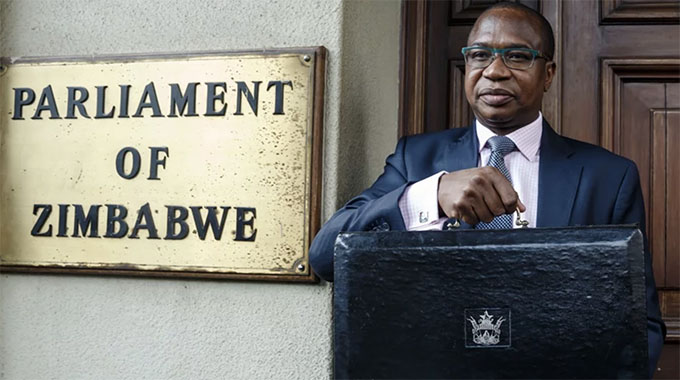Editorial Comment: Zim continues to move back into global relations

Zimbabwe’s election as vice chair of the Kimberly Process Certification Scheme for next year, which will see a near-automatic assumption of the chair for 2023, and subsequent election as the chair of the African Diamond Producers Association next year, is another milestone on the route to normal relations with the global community.
The two elections are not so much because Zimbabwe is special, rather that it is a now generally seen as a “normal” member of the international and continental communities. In the nature of things these posts rotate routinely, with those countries that have the capacity to host and service a few routine meetings with the required secretarial backing taking turns. But Zimbabwe was skipped for other reasons. Now, as with an ever increasing range of international ties, it is seen as routine for Zimbabwe to take its place. To consider the progress, we need to look right back to the beginning of Zimbabwe’s involvement in the Kimberly Process, that had itself been set up in 2000 by the producers, the diamond industry and civil organisations with United Nations backing to stop conflict diamonds funding armed rebellion, force labour like.
In September 2006 alluvial diamonds were found in the Chiadzwa area of the Marange communal lands. A major “diamond rush” developed as a lot of people raced into the area believing that riches could be picked up from the ground, although the bulk of Zimbabwean diamonds are low value industrial diamonds, rather than high value gems.
While everyone agreed that the whole business needed to be regulated, sorting out the diamond rush mess took a bit longer than it should have, as was the tendency under the old dispensation, but even at this time the legal rows over mining claims and the like were channelled into the courts. But the whole of the Chiadzwa find was seen as a perfect excuse by many who disliked the country to use the diamond finds as yet another stick to beat the Government.
There were even demands that the Kimberly Process should bar sales of Zimbabwean diamonds, even though the free-for-all was quickly brought under the necessary regulation and licensing. The intensity of the feelings and attacks can still be found on older websites, but the fact remains that 15 years down the line Zimbabwe is seen as a suitable future chair with a functioning diamond mining industry that operates under the normal mining, labour and taxation laws. The change in outlook is what is being measured.
Obviously the Second Republic’s diplomatic drive to engage and re-engage with everyone has its effect. But this drive has never been just words from President Mnanagwa. The President has himself, and has made sure that his Government is on board, to convert diplomatic talk into practical action.
A lot of that action is what Zimbabweans themselves want: sorting out the Government budget, funding development, strangling corruption, growing the economy and generally doing the nitty-gritty of Government competently and properly. But this sort of dual approach of fixing problems, talking about what has been done and is being done, and inviting anyone interested to come and have a look has been opening the doors.
Yesterday’s meeting of Polad, that groups leaders of most political parties in a forum where they can at least talk about their disagreements, was quite open on how the diplomatic offensive, backed by Presidential action, was making a significant difference.
The recent invitation to President Mnangagwa to attend the COP26 climate talks in Britain was seen as a major step. It was, but it was also another sign that Zimbabwe is being seen as a normal, developing country with a reasonable competent Government. Zimbabwe has been able to attend some UN meetings, but having an invitation and visa delivered by an ambassador rather than an embassy messenger makes a difference.
The COP26 Presidential visit was again a sign of normality. The fact that the British Prime Minister Boris Johnson and American President Joseph Biden took time to have fairly brief but reasonably substantive talks with President Mnangagwa, instead of being whisked past with eyes averted by a bevy of security officers, shows the change.
One point made with President Biden, the relationship with the US embassy in Harare, already seems to be under modification. Yesterday the US chargé d’affaires paid a courtesy call on Information Minister Monica Mutsvangwa, something that should be routine and which was described as such, but which has not happened much recently. Mr Thomas Hastings went a little further, saying he would like to see more trade between the US and Zimbabwe and then pushed the envelope by saying he would like to see more American businesses investing in Zimbabwe, and that was new. The formal financial sanctions are still in place but we are now at least talking civilly and “normally” and hopefully this can lead to progress, at least looking in the next step at what has been described as over-enforcement of sanctions.
This sort of diplomatic progress does not mean that Zimbabwe ignores its sovereignty or its own concerns, and obviously those we are now on reasonable speaking terms with will not ignore theirs, but the Second Republic has pushed hard for major progress in getting this sort of relationship moved back to what should be regarded as the normal system, rather than the abnormal systems we have seen.
That progress allows others, such as those US private desired investors, to take a far harder look at business opportunities and our growing “ease of doing business” without looking over both shoulders.










Comments